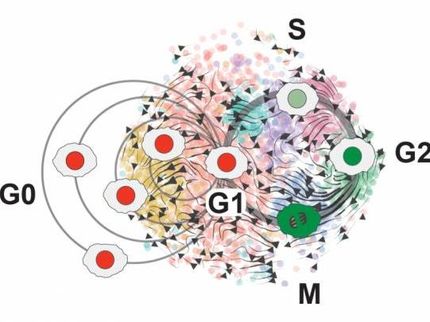Hormone refractory prostate cancer: New studies in Austria
The Medical University of Vienna has been commissioned by international pharmaceutical firms to conduct three clinical trials of the treatment of recurrent prostate tumors (hormone refractory prostate carcinomas). The new approaches comprise immunotherapy, hormone therapy and an augmented form of the current standard treatment with docetaxel.
Team leader Prof. Dr. Michael Krainer and his colleagues will concentrate primarily on tumors diagnosed late or those which recur after surgical interventions, and which do not (or no longer) respond to common treatments such as androgen deprivation.
The team will investigate the use of the monoclonal antibody ipilimumab as part of the immunotherapeutic treatment. This antibody can cause the body's own immune system to react against cancer cells. Prof. Krainer said that "the use of ipilimumab rather than docetaxel has led to rather surprising successes during the past year in a small-scale trial. In three patients, a tumor that had been hard to treat became so small that it could be surgically removed. Since a small-scale trial of this nature only allows limited claims to be made about the drug, ipilimumab is now being investigated further in a larger study."
A hormone treatment based on the drug MDV3100 is also being trialed by the team at the Medical University of Vienna. This is used as a second-line treatment after the initial treatment with docetaxel. MDV3100 is a substance that blocks the androgen receptor and thus offers a new approach to the prevention of hormone dependent tumor growth.
In the past, Prof. Krainer and his team were able to show the efficacy of docetaxel versus other common chemotherapeutic drugs. The third trial at the Medical University of Vienna will test the combination of docetaxel with the tyrosine kinase inhibitor sunitinib. As part of the trial, the researchers will examine biomarkers in the patients' blood that will yield information about the progress of the treatment.
Topics
Organizations
Other news from the department science

Get the life science industry in your inbox
By submitting this form you agree that LUMITOS AG will send you the newsletter(s) selected above by email. Your data will not be passed on to third parties. Your data will be stored and processed in accordance with our data protection regulations. LUMITOS may contact you by email for the purpose of advertising or market and opinion surveys. You can revoke your consent at any time without giving reasons to LUMITOS AG, Ernst-Augustin-Str. 2, 12489 Berlin, Germany or by e-mail at revoke@lumitos.com with effect for the future. In addition, each email contains a link to unsubscribe from the corresponding newsletter.



















































